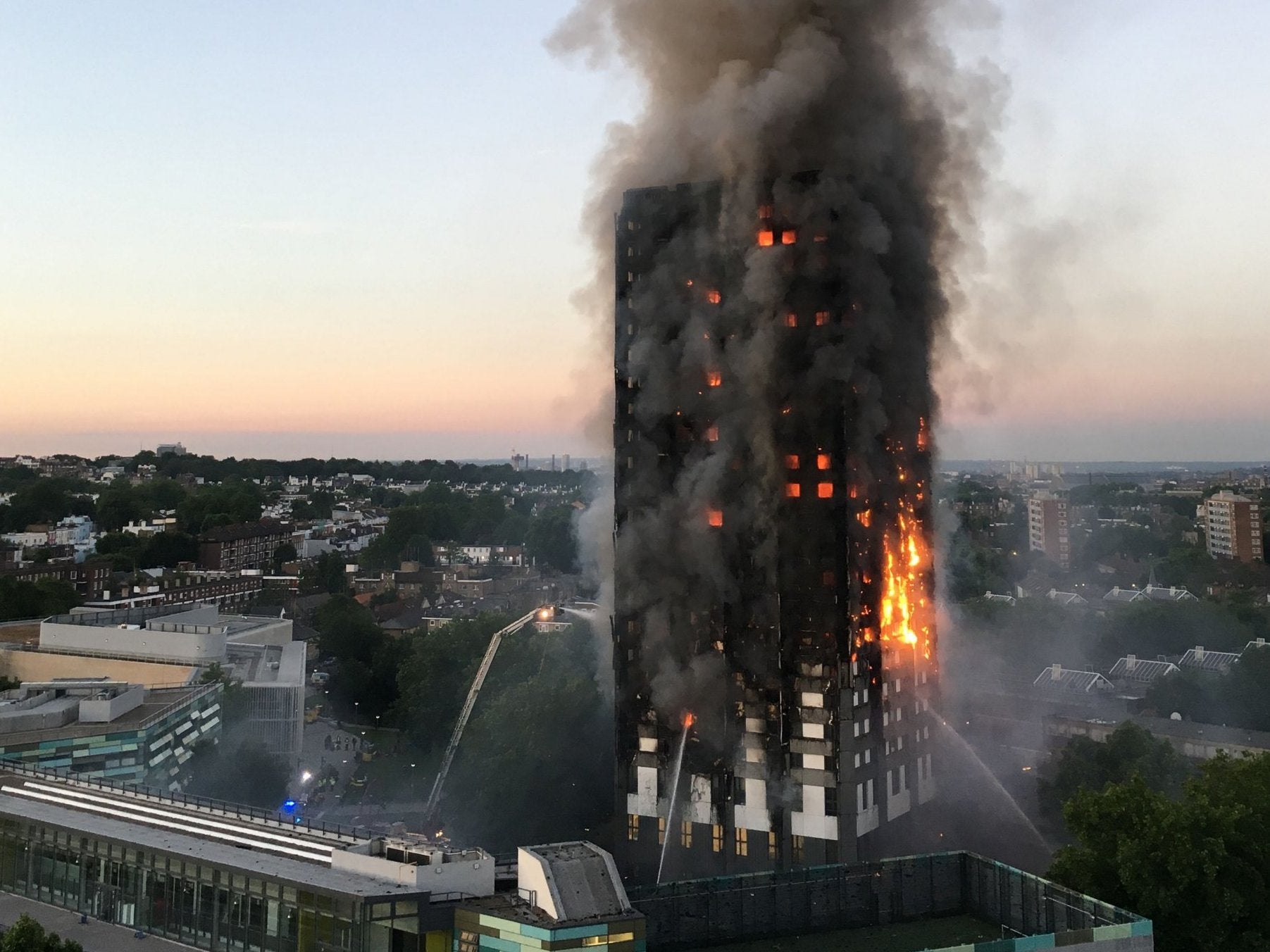Grenfell Tower: Sentences for gross negligence manslaughter could increase after investigation into deadly fire
'This guideline will help ensure sentencing that properly reflects the culpability of the offender and the unique facts of each case'

Sentences for gross negligence manslaughter, which is being considered by investigators looking into the Grenfell Tower fire, could be increased under new advice given to judges.
The offence is being considered by those investigating the fire, which killed 72 people.
Prosecutors in the 2019 trial of Hillsborough match commander David Duckenfield, who is accused of the manslaughter by gross negligence of 95 Liverpool supporters who died in the 1989 disaster, are also considering it.
Under the law at the time, there can be no prosecution for the death of the 96th victim, Tony Bland, as he died more than a year and a day after his injuries were caused.
The new advice comes after detectives investigating the Grenfell Tower tragedy carried out three interviews under caution in connection with the fire. The names of the interviewees were not released.
Scotland Yard considering whether offences including gross negligence manslaughter, corporate manslaughter and breaches of the Health and Safety Act were committed.
No arrests relating to the fire have been made, aside from those arrested on suspicion of fraud.
The Sentencing Council has issued comprehensive advice for judges on manslaughter for the first time, an offence which covers such a wide range of circumstances that jail terms can vary from one to 40 years.
Gross negligence manslaughter, where the accused allegedly breaches a duty of care towards the victim resulting in their death, has a sentencing range of between one and 18 years.

It can cover a variety of circumstances including where parents or carers fail to protect a child from an obvious danger, or employers who completely disregard employees’ safety “motivated by cost-cutting.”
Penalties are expected to increase in some cases because the advice is to focus more on the blame that should be placed on the offender, rather than the wider circumstances of the case.
It is believed in the past sentences in these cases have been too low, relative to other offences.
Other types of manslaughter covered by the guideline are unlawful act manslaughter, where someone dies after being assaulted but the attacker had no intention to kill or do them serious harm.
There is also manslaughter by reason of loss of control, where the killer would have been guilty of murder but suffered a loss of control, for example from a fear of serious violence.
And manslaughter by reason of diminished responsibility, where someone has a recognised mental condition that prevents them being convicted of murder.
Sentences for these three types of manslaughter are not expected to increase.
Sentencing Council member Lord Justice Holroyde said: “Manslaughter offences vary hugely – some cases are not far from being an accident, while others may be just short of murder. While no sentence can make up for the loss of life, this guideline will help ensure sentencing that properly reflects the culpability of the offender and the unique facts of each case.”
The guideline will come into force in courts on 1 November.
Additional reporting by Press Association
Bookmark popover
Removed from bookmarks